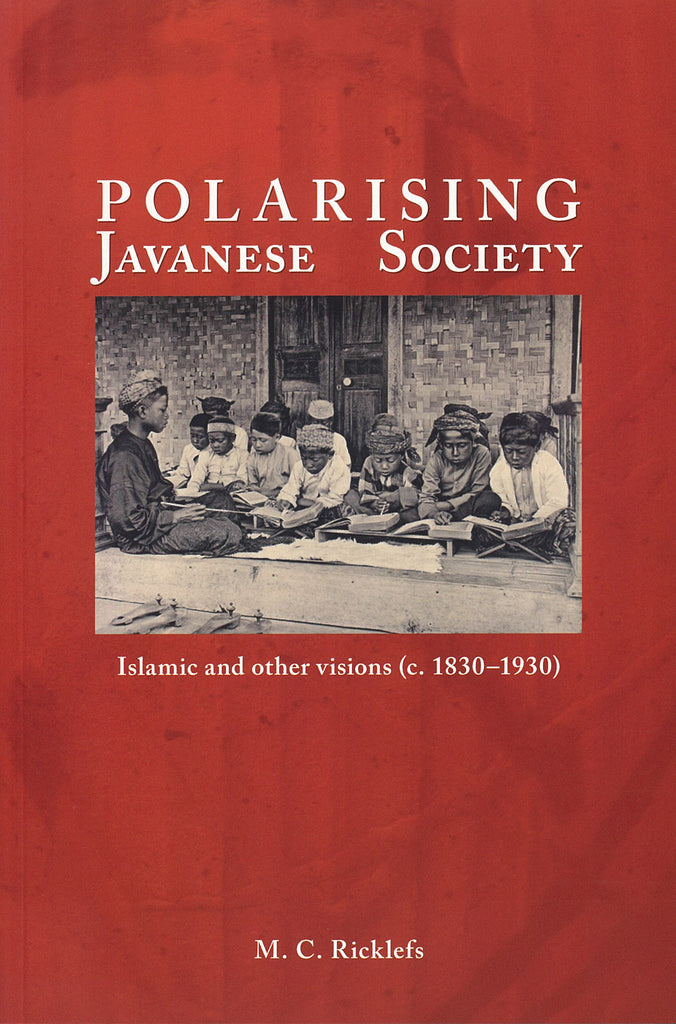Polarising Javanese Society: Islamic and Other Visions (c. 1830-1930)
$42.00 SGD
By the early nineteenth century, Islam had come to be the religious element in Javanese identity. But it was a particular kind of Islam, here called the "mystic synthesis". This Javanese mysticism had three notable characteristics: Javanese held firmly to their identity as Muslims, they carried out the basic ritual obligations of the faith, but they also accepted the reality of local spiritual forces.
In the course of the nineteenth century, colonial rule, population pressure and Islamic reform all acted to undermine this "mystic synthesis". Pious Muslims became divided amongst adherents of that synthesis, reformers who demanded a more orthoprax way of life, reforming Sufis and those who believed in messianic ideas. A new category of Javanese emerged, people who resisted Islamic reform and began to attenuate their Islamic identity. This group became known as abangan, nominal Muslims, and they constituted a majority of the population. For the first time, a minority of Javanese converted to Christianity. The priyayi elite, Java's aristocracy, meanwhile embraced the forms of modernity represented by their European rulers and the wider advances of modern scientific learning. Some even came to regard the original conversion of the Javanese to Islam as a civilisational mistake, and within this element explicitly anti-Islamic sentiments began to appear.
In the early twentieth century these categories became politicised in the context of Indonesia's nascent anti-colonial movements. Thus were born contending political identities that lay behind much of the conflict and bloodshed of twentieth-century Indonesia.
"Polarising Javanese society is an important and comprehensive study, displaying great learning and judicious use of historical evidence... it is written in a generally accessible style, and should be of great interest to all students of modern Indonesian history."
- Matthew Isaac Cohen, Professor at Royal Holloway, University of London, in Bijdragen tot de Taal-, Land- en Volkenkunde journal.
M.C. Ricklefs is Professor Emeritus of the Australian National University. He was formerly Professor of History at the National University of Singapore and Monash University, and Director of the Research School of Pacific and Asian Studies at the Australian National University. A Fellow of the Australian Academy of the Humanities, he is the author of Mystic Synthesis in Java: A History of Islamisation from the Fourteenth Century to the Early Nineteenth Centuries (EastBridge, 2006) and Islamisation and Its Opponents in Java: A Political, Social, Cultural and Religious History, c. 1930 to Present (NUS Press, 2012).
Publication Year: 2007
256 pages, 229mm x 152mm
ISBN: 978-9971-69-346-6, Paperback
ISBN: 978-9971-69-359-6, Hardback
NUS Press and University of Hawaii Press and KITLV Press

